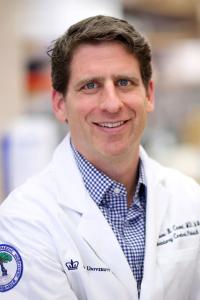Windsor Ting, PhD Awarded SCIRB Postdoctoral Fellowship
Award supports two years of mentored training and research in the Movement Recovery Lab
Congratulations to the Movement Recovery Lab’s Windsor Ting, PhD, for receiving a 2-year postdoctoral fellowship award from the New York State Spinal Cord Injury Research Board (SCIRB). The award supports promising fellows who will positively contribute to the science of nervous system repair.
Dr. Ting is a postdoctoral researcher whose work has focused on developing an understanding of nerve cell connections that can be targeted to improve function. The scientific focus of the fellowship is to investigate the neural pathways that can be electrically stimulated to restore arm and hand function. Dr. Ting will use laboratory models to define these connections and then strengthen them.
Beyond neuroscientific understanding, the potential impact of this work is far-reaching. For people with chronic neurological disability, a function they hope to regain is often arm and hand control. “Once we know what those neural pathways are, we can then develop stimulation techniques that are specific to them,” explained Dr. Ting. “This may help the field to eventually create effective treatments for restoring fine motor control in people with central nervous system injury.”
The award comes on the strength of the training plan and research environment. Dr. Ting will be mentored by Jason B. Carmel, MD, PhD, Director of the Movement Recovery Lab. The lab’s approach to movement recovery following spinal cord injury is to target the connections that are spared by injury. The team has used lab models to understand how activity, such as electrical stimulation can strengthen these spared neural pathways to restore movement.
"I am thrilled for Windsor that he was able to garner external support for this project," said Dr. Carmel. "He has the scientific chops and dedication to make an important contribution to the field of restorative neurology."
Learn more about Dr. Ting’s projects and the other research of the Movement Recovery Lab.

